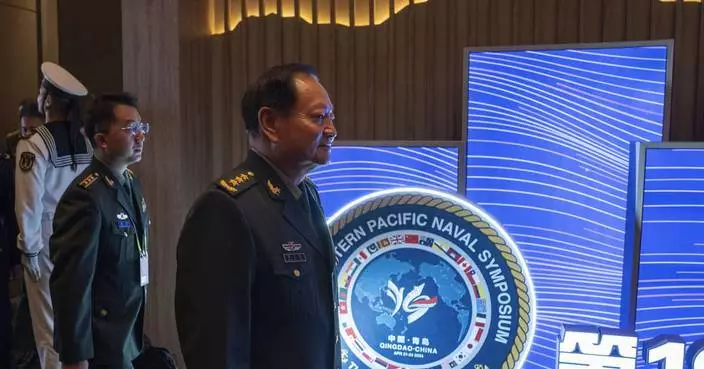Tommy and Laura Thomson always knew they wanted to adopt a child; the question was, from where? The answer came during their first trip to China almost a decade ago.
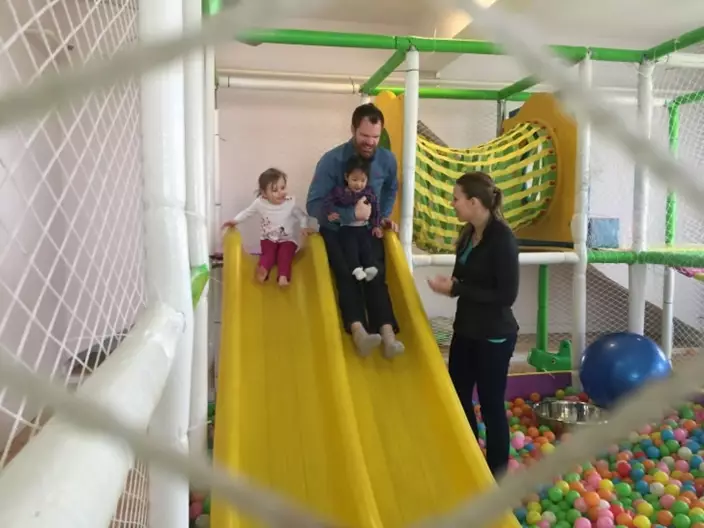
International adoptions are becoming more difficult in China./ CGTN Photo
As Tommy explains: “I think, before we came to China we would have considered other countries near the US, perhaps a Hispanic culture, myself having lived in Mexico and having always had a strong desire to go to South America, but instead we fell in love with China, and we decided if we want to adopt we would like to continue to have a relationship, therefore adopting a child from there.”
And so they started the adoption process. In order to immerse themselves in the home culture of their prospective child, the couple moved back to China with their young daughter, Ruby, in May 2016. They planned to spend the next 18 months helping out at a local NGO that takes in orphans with disabilities.
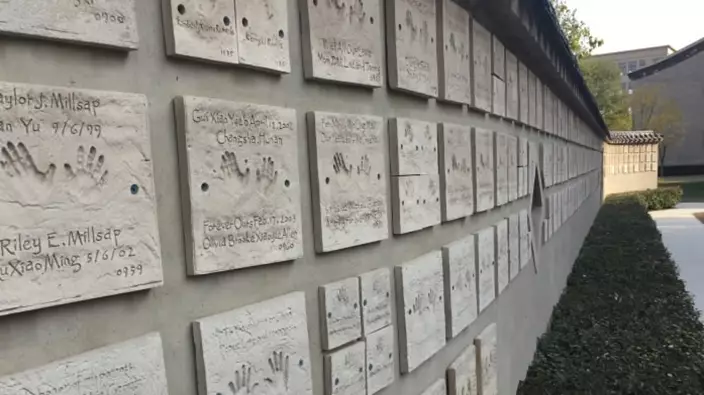
CGTN Photo
Once approved for adoption, they were matched up with a little girl originally from Fujian Province. But before they could proceed, they had to go through an emotionally-taxing period during which the authorities verified that her parents would not come forward to claim the girl.
Laura recounts the inner turmoil they faced during this time of uncertainty: “The original orphanage in which she was found have to advertise the child to the public of that area, so they can speak up and claim their child before they’re internationally adopted. And it actually is two or three months. Once that window is closed, doesn’t matter, nobody can speak up, they’re now available. So that was quite stressful. It was a really emotional time of ‘Well, if their family wants them, please take her… but we want her, too...’ But nobody stepped up to claim her, and so then she was available for international adoption. It was a while before she was given to us and matched with us, but at least she was available.”
China has long been a country of interest for US families eager to adopt, with almost half of all international adoptees in the US during 2016 having been born here. Following a steep fall in the number over the past decade, only around 5,300 Chinese children were adopted by Americans in 2016. This decline, to merely a quarter of the figure in 2004, is attributed to changes in the adoption laws, which have become increasingly stringent – notably in China. At the end of July 2017, the China Centre for Children’s Welfare and Adoption released an updated list of requirements for potential adoptive parents, which excluded people suffering from depression or epilepsy, and those with a Body Mass Index of over 40.
From the orphan’s side, there is a further threat to a successful adoption, in the form a ticking clock. According to Chinese adoption laws, on the children’s 14th birthday they are no longer eligible for adoption.
Speaking on behalf of her NGO, Laura says: “There is a rush for some of our older children because it does take a while to do an international adoption. You’re hitting 12; you’re hitting 13, we really need to get going on this. We’ve had children that have had a family matched but whatever the regulations, the family couldn’t get here in time and it fell through, and they were no longer adoptable.”
In Laura and Tommy’s case, the process took almost two years, but they finally got their happy ending. They have packed their suitcases and returned to the US with their daughter, but with a resolve to keep the connection with her country of birth, alive. So, this is a “See you soon” rather than a final goodbye.
TAIPEI, Taiwan (AP) — A $8 billion defense package approved by the U.S. House of Representatives over the weekend will “strengthen the deterrence against authoritarianism in the West Pacific ally chain,” Taiwan’s President-elect Lai Ching-te said Tuesday, in a reference to key rival China.
The funding will also “help ensure peace and stability across the Taiwan Strait and also boost confidence in the region” Lai, currently Taiwan’s vice president, told visiting Michigan Representatives Lisa McClain, a Republican, and Democrat Dan Kildee at a meeting at the Presidential Office Building in the capital Taipei.
In the face of “authoritarian expansionism,” Taiwan is “determined to safeguard democracy and also safeguard our homeland," Lai said.
Also known as William Lai, U.S.-educated former medical researcher is despised by Beijing for his opposition to political unification with the mainland. In recent elections, the pro-unification Nationalists won a narrow majority in the legislature, but their influence on foreign policy and other national issues remains limited.
The Senate will vote Tuesday on $95 billion in war aid to Ukraine, Israel and Taiwan.
The package covers a wide range of parts and services aimed at maintaining and and upgrading Taiwan's military hardware. Separately, Taiwan has signed billions in contracts with the U.S. for latest-generation F-16V fighter jets, M1 Abrams main battle tanks and the HIMARS rocket system, which the U.S. has also supplied to Ukraine.
Taiwan has also been expanding its own defense industry, building submarines and trainer jets. Next month it plans to commission its third and fourth domestically designed and built stealth corvettes to counter the Chinese navy. as part of a strategy of asymmetrical warfare in which a smaller force counters its larger opponent by using cutting edge or nonconventional tactics and weaponry.
Lai, of the pro-independence ruling Democratic Progressive Party, won the January election handily and takes over next month from President Tsai Ing-wen, whom Beijing has sought to isolate for the past eight years.
China is determined to annex the island, which it considers its own territory, by force if necessary and has been advertising that threat with daily incursions into waters and air space around Taiwan by navy ships and warplanes. It has also sought to pick away Taiwan's few remaining formal diplomatic partners.
While Washington and Taipei have no formal diplomatic ties in deference to Beijing, McClain emphasized the need for the entire world to observe the strength of the relationship.
“Peace is our goal. But to do that, we have to have relationships and we value your relationship. Not only militarily, but economically,” she said.
Kildee said the timing of the visit was especially significant given the recent passage of the funding bill to “provide very important support to insure security in this region.”
"It’s important for the people of Taiwan, it’s important for the people in the United States, it’s important for the entire world,” Kildee said.
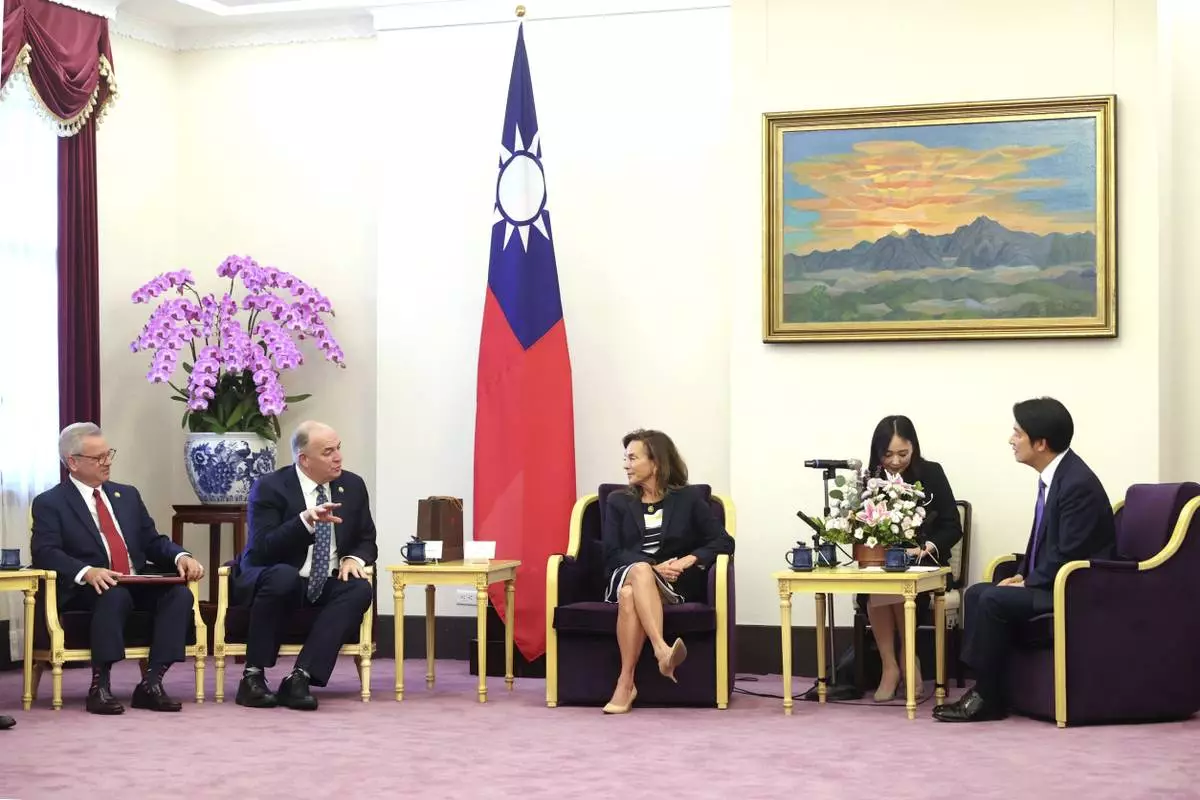
In this photo released by the Taiwan Presidential Office, from left Mark Alford, a member of the House Armed Services Committee, U.S. Democratic Congressman Dan Kildee, Lisa McClain, secretary-general of the Republican Caucus of the U.S. House of Representatives meets with Taiwan President-elect and Vice President Lai Ching-te in Taipei, Taiwan on Tuesday, April 23, 2024. McClain and Kildee jointly led a cross-party group of lawmakers to visit Taiwan from April 23 to 25 . Members also include Mark Alford, a member of the House Armed Services Committee. (Taiwan Presidential Office via AP)
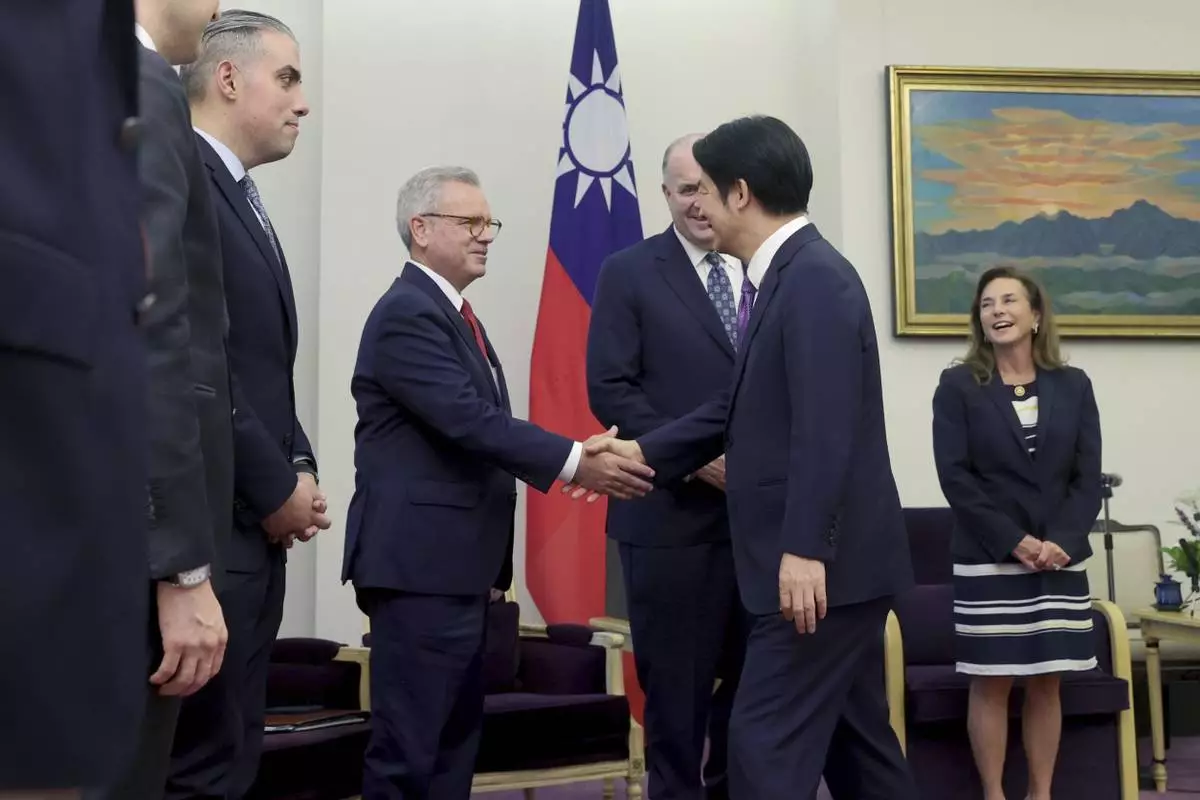
In this photo released by the Taiwan Presidential Office, Mark Alford, center left, a member of the House Armed Services Committee shakes hands with Taiwan President-elect and Vice President Lai Ching-te in Taipei, Taiwan on Tuesday, April 23, 2024. Lisa McClain, secretary-general of the Republican Caucus of the U.S. House of Representatives and Democratic Congressman Dan Kildee jointly led a cross-party group of lawmakers to visit Taiwan from April 23 to 25 . Members also include Mark Alford, a member of the House Armed Services Committee. (Taiwan Presidential Office via AP)
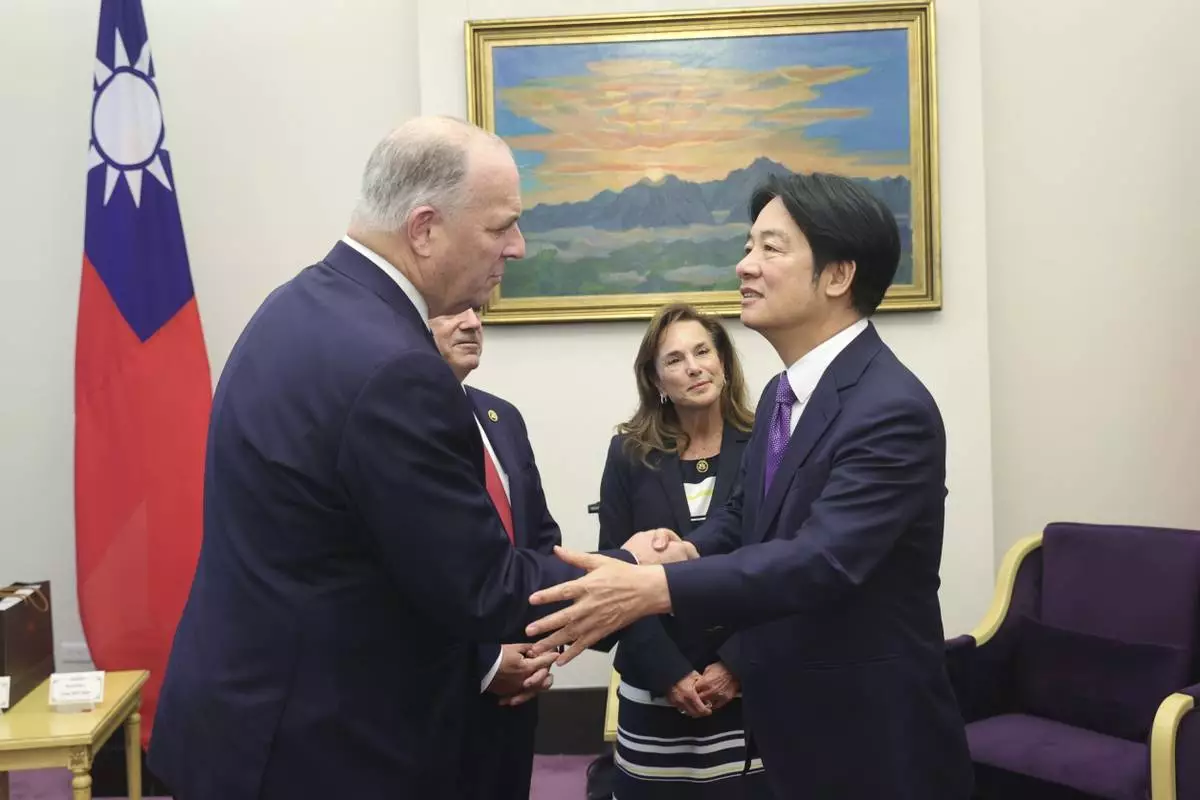
In this photo released by the Taiwan Presidential Office, U.S. Democratic Congressman Dan Kildee, left, meets with Taiwan President-elect and Vice President Lai Ching-te in Taipei, Taiwan on Tuesday, April 23, 2024. Kildee and Lisa McClain, secretary-general of the Republican Caucus of the U.S. House of Representatives jointly led a cross-party group of lawmakers to visit Taiwan from April 23 to 25 . Members also include Mark Alford, a member of the House Armed Services Committee. (Taiwan Presidential Office via AP)
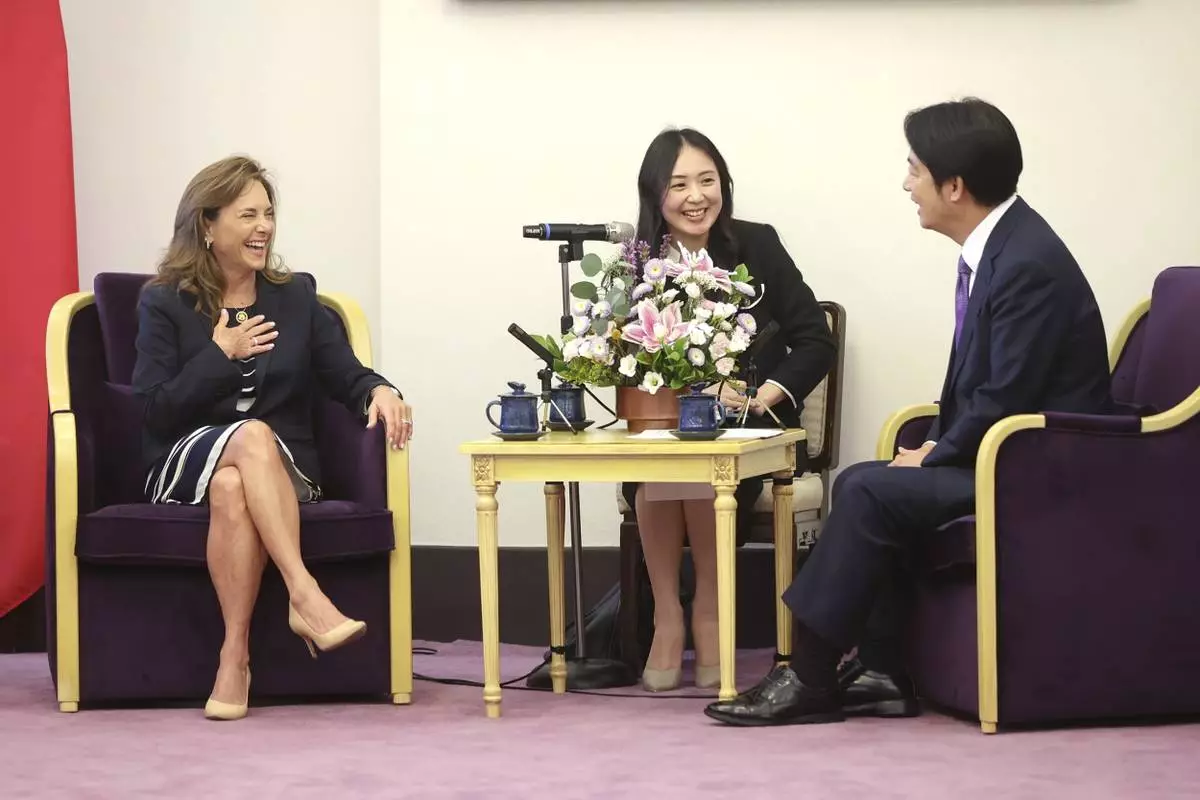
In this photo released by the Taiwan Presidential Office, Lisa McClain, left, secretary-general of the Republican Caucus of the U.S. House of Representatives meets with Taiwan President-elect and Vice President Lai Ching-te in Taipei, Taiwan on Tuesday, April 23, 2024. McClain and Democratic Congressman Dan Kildee jointly led a cross-party group of lawmakers to visit Taiwan from April 23 to 25 . Members also include Mark Alford, a member of the House Armed Services Committee. (Taiwan Presidential Office via AP)
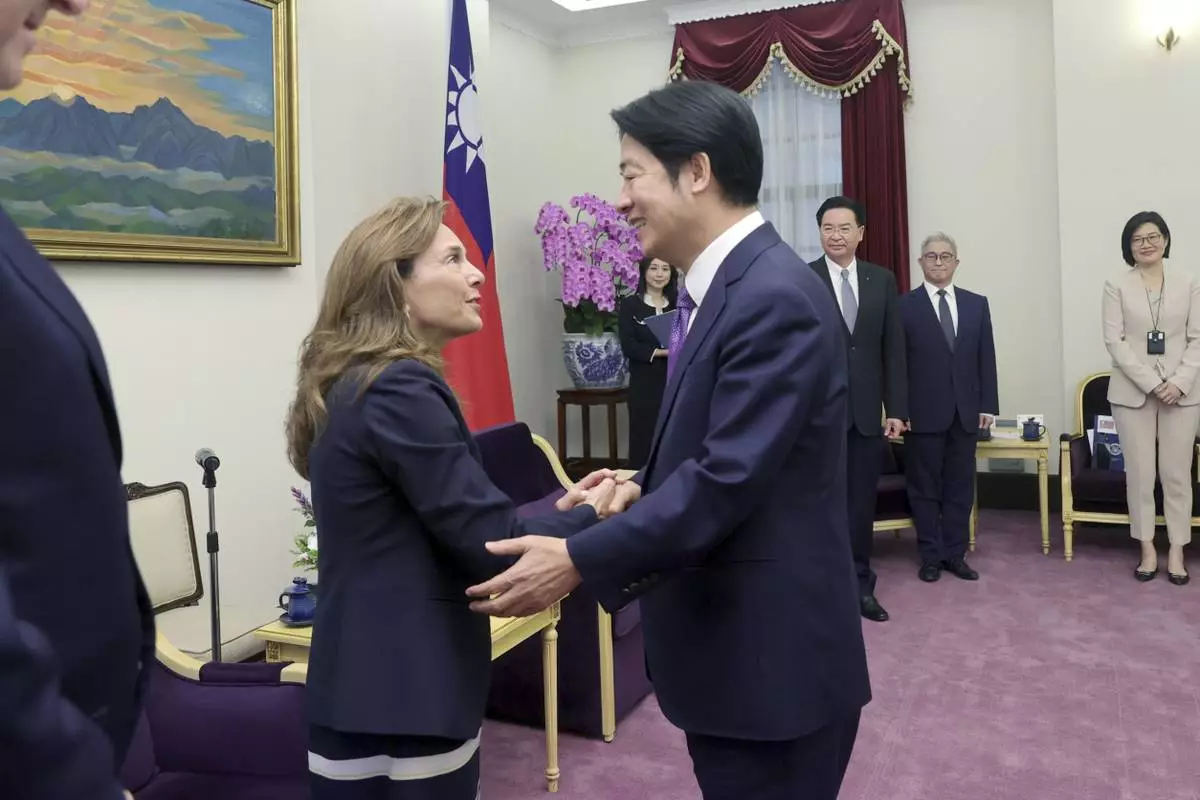
In this photo released by the Taiwan Presidential Office, Lisa McClain, left, secretary-general of the Republican Caucus of the U.S. House of Representatives meets with Taiwan President-elect and Vice President Lai Ching-te in Taipei, Taiwan on Tuesday, April 23, 2024. McClain and Democratic Congressman Dan Kildee jointly led a cross-party group of lawmakers to visit Taiwan from April 23 to 25 . Members also include Mark Alford, a member of the House Armed Services Committee. (Taiwan Presidential Office via AP)















